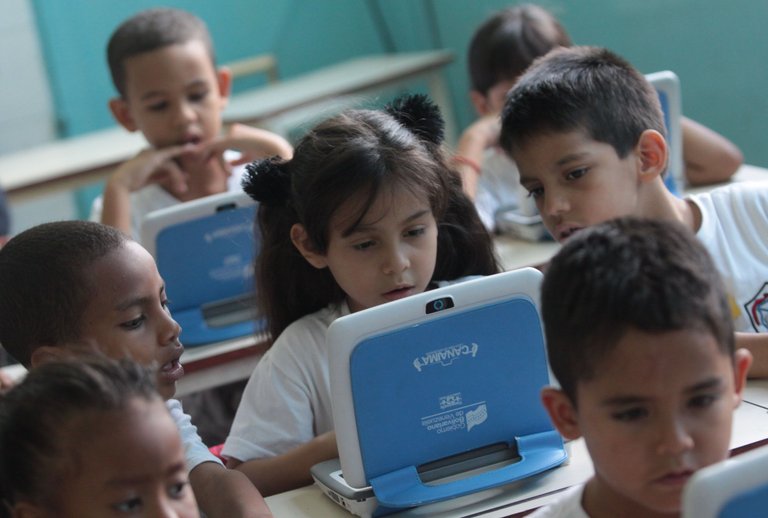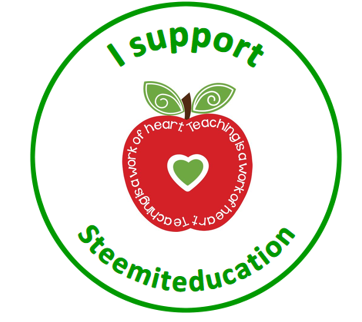
Undoubtedly, education is the best inheritance that parents can leave to their children, and that is why everyone, by coinciding in this; Decides to send their children to school from pre-school, continuing with primary, secondary; Until reaching the university stage, the person decides which course to take; Some following in the footsteps of their parents, others plotting their own steps.
Returning my mind to the past, I can still see the faces of all the students who would share with me, the classroom, looking at me as I entered, we were all nervous, frightened, as we did not know what would happen because it was our first day of school and also Our first cycle in a school. You'll be fine, you'll have fun, it was my mother's words; Which gave me encouragement and reassuring me, not to mourn like many of the others. It was our first day in kindergarten.
When I entered the preschool, some of my siblings used to tell me what the school was like, or talk about it when I was present, but sitting there for the first time, inside the classroom, I had a lot of mixed feelings. I felt fear, joy and sadness at the same time. This happened, because I was afraid to think it would be the teacher who would teach me, because I had a bad concept of it.
This situation, did not show up to one hundred percent on my first day in primary, as with me there would also be students with whom I was in preschool, that is, we were already known, for that reason we wanted to sit close to each other and in this way we did not feel so The like in kindergarten.
The day came to start a new school cycle, I mean high school, where he was already a teenager, and fear or nervousness were almost defeated. Familiar faces, companions with whom I had already shared the school at the previous levels. The entry into high school was the best, because I felt confident and enthusiastic.
Education as a mechanism for social inclusion.
Today we must bear in mind that many times the problem of children in school, better known as school failure, originates when the family does not have the organization and strategies of how to lead a dignified life because there is unemployment , unstable housing. That is why it is necessary to educate this type of population, with a good help that is education, because through it we can change the people advising and showing them the possible exit that has the situation. It is important to mention that every country should put as its first interest and objective the education of its people, because with it they will be able to reach all those goals and aspirations that a human being has, taking into account their freedom because without it it came to ignorance And this factor will prevent you from progressing so much for how to the family that in a future form.

With the emergence in 1999 of the Constitution of the Bolivarian Republic of Venezuela Many changes have taken shape in the country, especially with regard to the transformation of the educational model. During the seven years of Bolivarian government, the Venezuelan state has launched a series of actions in order to strengthen the Venezuelan education system in all its levels and modalities, through the expansion of quality training opportunities, Free and directed to The shaping of a new republican model.
The elimination of tuition fees on official campuses; The increase in coverage of initial, basic, middle and upper education; The start-up of the Bolivarian educational system; The Robinson missions I and II, the Sucre mission; The construction of new campuses and the rehabilitation of the existing ones, are some of the fruits that has given the transformation posed for the Venezuelan education system.
A paradigm shift
Previously, Venezuelan education was based on a model centered on administration and focused on the reproduction of foreign and exclusionary knowledge, which favored the denial of identity. At the same pace as the educational change that is taking shape in the country, the Ministry of Education and Sports (MED) undertakes a curricular change. Based on modernization and updating through a participatory collective construction methodology. As stated by the Minister of Education and Sports, Aristobulus Istúriz, each student must develop from the rooting with their environment, in line with the objectives of endogenous development posed by the national government.
Education in Venezuela at the moment is going through big changes, we have today two educational proposals in our country; Even one in transit that has weighed that is not approved in some schools and lyceums Bolivarian is currently being implemented, as is the new national Bolivarian curriculum. The educational system needs to carry out its work, human, physical and financial resources growing; That is why, in recent decades, the different governments have given education the first priority, thus earmarking important portions of the national budget.

The Venezuelan education system, however, accuses serious failures, of which one can cite as the most obvious: illiteracy, the school deficit, the extra-age, the low continuation, the desertion like those excluded from the school.

However, it is worth mentioning the systematic attempt at modernization that has been operating in recent years. The attempt to make education respond to the development of the country and the man and woman of the future, which tend to educate the real possibility of becoming gradually and progressively enriched in a culture that leads it to acquire a compressive and organic vision of Physical, social and spiritual world and to support him for the projection of his personality.
Currently, the Government has implemented other forms of study, mainly aimed at people with limited resources; Elderly people who were unable to complete basic or superior studies and excluded persons in general were also given the opportunity. We will essentially refer to 2 of the 3 educational missions that have been implemented: the Robinson mission and the Ribas mission. The Robinson is a national mass literacy program.
According to the census of 2001, there were in Venezuela little more than one million illiterate, of which 22% were over 55 years. This is important, since those of that age did not benefit from the overcrowding of official education in the years 1960 and 1970. Others are victims of the inability of the school and the educational system. They are illiterate who passed through the educational system but were forced to leave the system very prematurely.

In Venezuela, profound changes have been brewing for a long time.
Education in Venezuela has had progressive repercussions, but stagnated in models induced and developed in other countries to which they were not given continuity for their development, that is why the new conception curricular seeks to build the development Of the Republic, based on a search for the equilibrium model from the school-society-nation relationship, That guarantees the human continuum and the knowledge as power of the people, framed in the real categories determined by the renovating process that is produced at educational level since the year 1999.
Being productivity, health and life, creation and creativity, peace, the axis of new technologies, the community axis, communication, pedagogical and technological innovation and inclusion, the fundamental pillars that allow to create a new model of Humanist and Solidarity Society.
Providing a grain of sand for better education
